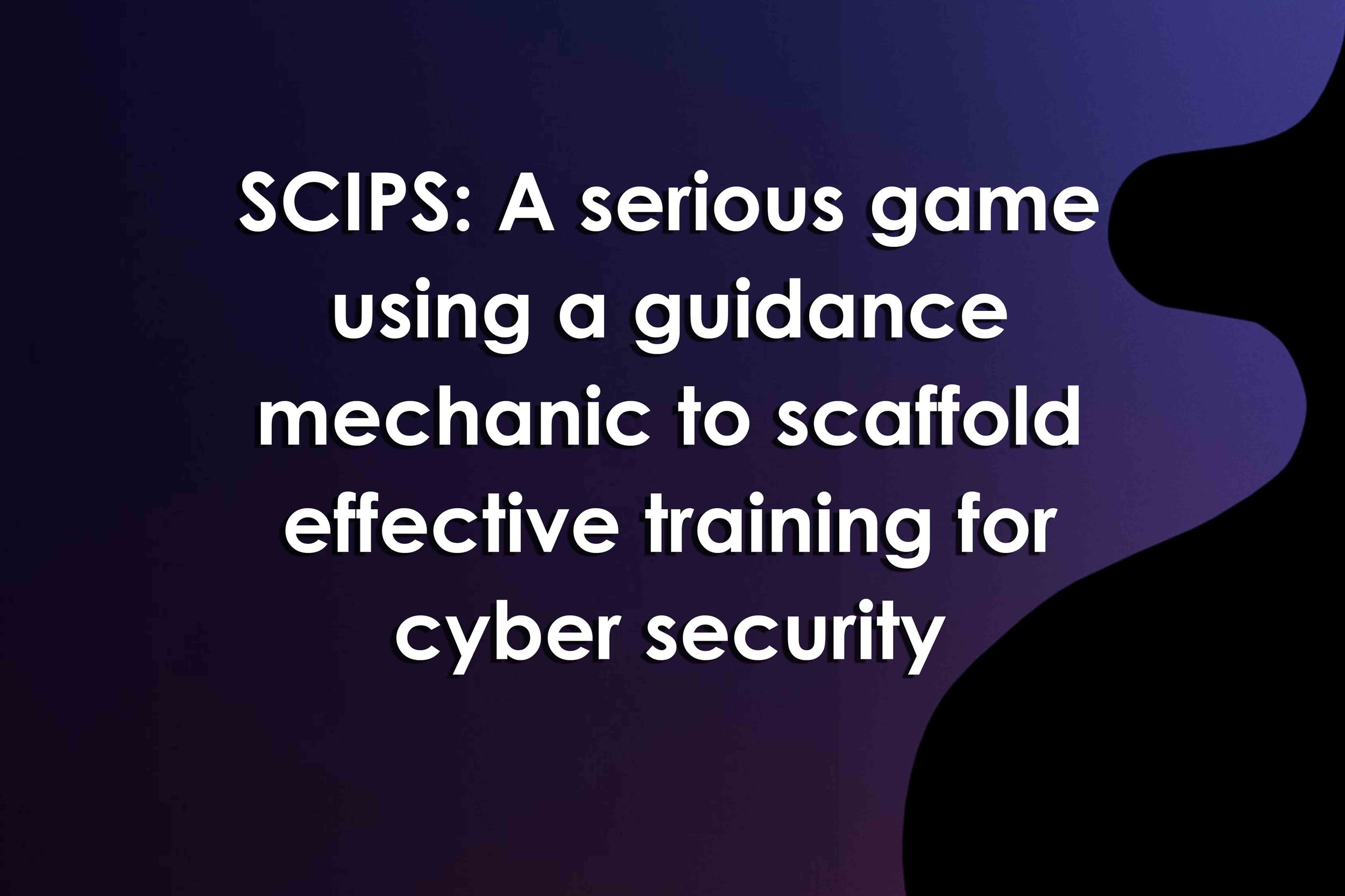SCIPS: A serious game using a guidance mechanic to scaffold effective training for cyber security
SCIPS: A serious game using a guidance mechanic to scaffold effective training for cyber security
SCIPS: A serious game using a guidance mechanic to scaffold effective training for cyber security
By Stuart O’Connor, Salim Hasshu, James Bielby, Simon Colreavy-Donnelly, Stefan Kuhn, Fabio Caraffini and Richard Smith
Abstract
“Training effective simulation scenarios presents numerous challenges from a pedagogicalpoint of view. Through application of the Conceptual Framework for e-Learning andTraining (COFELET) as a pattern for designing serious games, we propose the use of theSimulated Critical Infrastructure Protection Scenarios (SCIPS) platform as a prospective tool for supporting the process of providing effective cyber security training. The SCIPS platformis designed to run different scenarios, such as examples in financial forecasting and business infrastructures, with an initial scenario developed in collaboration with industrialpartners focusing on an electricity generation plant. Focus groups from these sources wereconducted to identify design and developmental considerations for the platform. As anextension from the COFELET framework, we propose an intelligence scaffolding practiceas a guidance mechanic taking the form of an agent within the scenario. The agent represents a major innovation in the system and we envisage a deep learning-based augmentation to further adapt towards the behavioural aspects of learners.”
Reference
O’Connor, S., Hasshu, S., Bielby, J., Colreavy-Donnelly, S., Kuhn, S., Caraffini, F., & Smith, R. (2021). SCIPS: A serious game using a guidance mechanic to scaffold effective training for cyber security. Information Sciences, 580, 524-540. doi:10.1016/j.ins.2021.08.098 https://www.sciencedirect.com/science/article/abs/pii/S0020025521009129
Keyword
Serious games, simulations, incident training, cooperative learning, collaborative learning, research

